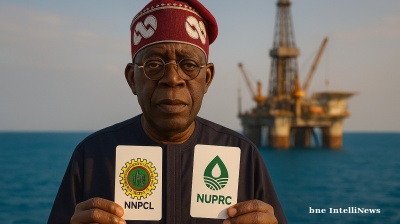The junior parties in Slovakia’s ruling coalition want to continue the government, officials pledged on August 8 following an emergency meeting, but some sound more committed than others.
The summit was called by Prime Minister Robert Fico the previous day, after Slovak National Party (SNS) leader Andrej Danko announced the party’s withdrawal and demanded a new coalition agreement. The move crystalised inherent instability in the disparate government, which was cobbled together by Fico in the wake of the March 2016 election, in which his Smer party surprisingly lost its majority.
The coalition has proved more stable than expected. However, there have been regular suggestions that the SNS in particular stands ready to split from Fico under the right conditions. That was presumed to mean a gain in support that would increase its leverage might cause ructions. No such surge has been seen, but the SNS is under pressure over a scandal regarding EU funds at the science and education ministry that it controls.
While the withdrawal of the SNS would not automatically trigger early elections, it is a possibility should a new coalition agreement not be sealed. However, self preservation is a clear motivation to keep the government on the rails.
Polls published in late July showed the current coalition would fail to win enough seats between them to secure a majority. Smer would win just 26.5% of the vote, SNS 10.3% and Most Hid – the smallest party in the coalition – 6.2%.
Freedom and Solidarity (SaS) polled at 14.2%. The neo-nazi People's Party Our Slovakia/ĽSNS would take 9.1%. Sme Rodina and the non-parliamentary Christian Democratic Movement-KDH also crossed the 5% threshold to enter parliament in the survey.
Bela Bugar, chairman of Most-Hid, claimed to journalists after the summit that the three parties fully intend to continue their partnership. "It was clearly stated at today's session that there is no alternative to this coalition, so the coalition leaders are determined to continue," he said, according to TASR. The party leaders plan to meet again on August 11.
Officials from SNS were less straightforward, and there are signs of confusion within the party. Vice-chairman Jaroslav Paska said he cannot rule out the possibility that SNS could withdraw from the government, but stressed that he'd prefer a different scenario.
The crisis has been sparked by Smer’s failure to respect the coalition agreement, and also efforts to discredit SNS, Paska claimed. The situation surrounding the education ministry was the final straw, he said.
However, Anton Hrnko, another vice-chairman of SNS, said the move by Danko was the most extreme variant of several options the party agreed on August 4. "We'll see what he [Danko] tells us, because we gave him a certain mandate on Friday and he implemented its most extreme alternative. So we first need to find out what caused him to do it," he said.
The withdrawal of the party was announced by Danko on August 7 in a letter to his coalition partners. The SNS leader claims the move is necessary to reset the rules within the coalition, and he urged talks on a new agreement.
Danko did not talk to the press following the August 8 meeting. Neither has there been any comment from Fico, or any major Smer figure.
The opposition has been swift to connect the move by SNS to a recent scandal centred on the science and education ministry, which is controlled by Danko’s party. The European Anti-Fraud Office (OLAF) has launched a probe into the use of EU funds by the ministry. A petition calling for a non-confidence vote on Peter Plavcan, the minister in charge, has collected the required number of signatures.
News

Fuel prices in Kyrgyzstan rocket as Ukraine steps up drone strikes on Russian refineries
Central Asian country relies on Russia for nine-tenths of its fuel.

El Salvador leads Latin America's democratic decline, global watchdog warns
The latest IDEA report warns El Salvador faces the fastest democratic erosion in Latin America, with security policies under Bukele raising concerns over freedoms, judicial independence, and long-term institutional damage.

Nigerian president advances oil bill placing NNPCL under control of Finance Ministry, upstream regulator
President Bola Tinubu has endorsed a bill that would undermine the "independence" of NNPCL, shifting ownership to the Finance Ministry and handing new powers to upstream regulator NUPRC.

‘Tinder Swindler’ Simon Leviev detained in Georgia on Interpol red notice
Shimon Yehuda Hayut gained worldwide notoriety thanks to the 2022 Netflix documentary 'The Tinder Swindler', which detailed how he allegedly posed as the son of billionaire diamond tycoon to scam women he met on Tinder.
_1758026150.jpg)



